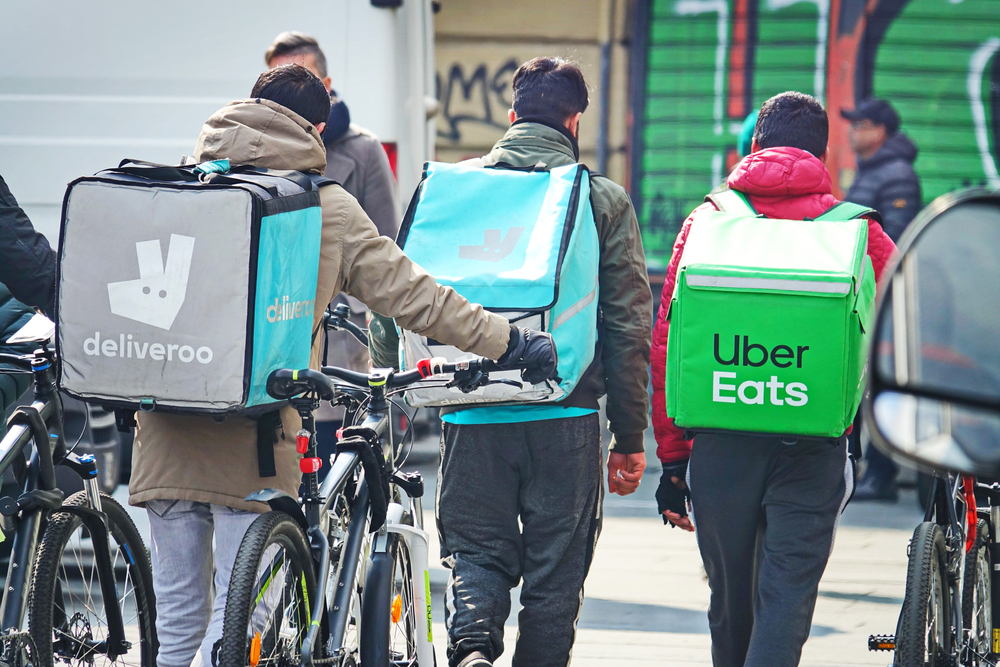The Supreme Court has confirmed in Independent Workers’ Union of Great Britain v the Central Arbitration Committee and anor that Deliveroo drivers cannot rely on Article 11 (freedom of association) under the European Convention on Human Rights (ECHR) to establish compulsory union recognition. This was because they were not in an employment relationship with Deliveroo.
Basic facts
In 2016 the Independent Workers’ Union of Great Britain (IWGB) applied to the Central Arbitration Committee (CAC) under the compulsory recognition procedures in Schedule A1 to the Trade Union and Labour Relations (Consolidation) Act 1992 (TULRCA) for the right to collectively bargain on behalf of a group of Deliveroo riders in North London.
Relevant law
Schedule A1 TULRCA states that unions can seek recognition on behalf of a group or groups of “workers”.
Section 296 TULRCA sets out the definition of a worker as an individual who works under a contract of employment or “under any other contract whereby he [sic] undertakes to do or perform personally any work or services for another party to the contract who is not a professional client of his”.
Decisions of lower courts
The CAC rejected the union’s arguments (ELR 555) for two main reasons. Firstly, it held that the riders were not workers within section 296 as the terms under which they were engaged did not require them to do the work personally. Secondly, the company’s refusal to recognise the union was not a breach of their rights under Article 11 as they were not in an “employment relationship” with Deliveroo.
The union then sought to judicially review that decision in the High Court (ELR 605) by arguing that although the riders did not fall within the domestic definition of “worker” under TULRCA, the section should be read in such a way as to comply with their article 11 rights.
The High Court dismissed the argument, stating that Article 11 was not engaged as the riders were note not, therefore, workers and were in an “employment relationship” with Deliveroo. The IWGB appealed to the Court of Appeal, which upheld the High Court’s judgment (ELR 733). The union appealed again.
Supreme Court decision
Although Article 11 protects the general rights of freedom of peaceful assembly and freedom of association with others, the Supreme Court confirmed that case law decided by the European Court of Human Rights had established that the right to form a trade union only arises in the context of an employment relationship. For the purposes of Article 11, this did not depend on the definitions of workers or employees used in domestic law.
To decide whether there is an employment relationship for the purposes of Article 11, courts should have regard to the factors set out in the International Labour Organisation Employment Relationship Recommendation, 2006 No 198. In other words, they should be guided primarily by the facts relating to how the work is performed, irrespective of how the relationship is characterised in the contract between the parties. Although courts must consider a range of different factors, they should, therefore, focus on the practicalities of the relationship and how it operates.
In this case, the CAC had made several findings which meant that there was no employment relationship between the parties and the union could not rely on article 11:
- The riders had a “broad and virtually unfettered right” to appoint a substitute.
- They were free to work or not, depending on what was convenient for them.
- Deliveroo had no objection if riders wanted to work at the same time simultaneously for its competitors.
The Supreme Court, therefore, dismissed the union’s appeal.
Comment
The struggle for workplace fairness is an ancient one and this case is the latest salvo. In the 2017 UNISON fees case the Supreme Court said:
‘Relationships between employers and employees are generally characterised by an imbalance of economic power. Recognising the vulnerability of employees to exploitation, discrimination, and other undesirable practices and the social problems which can result, Parliament has long intervened in those relationships so as to confer statutory rights on employees rather than leaving their rights to be determined by freedom of contract. More recently, further measures have also been adopted under legislation giving effect to EU law. For the rights conferred on employees to be effective, and to achieve the social benefits which Parliament intended, they must be enforceable in practice”.
As workers' rights evolve, they are countered by employer practice, and the law needs to play catch-up again. This time it is limb (b) workers. That is, workers who are self-employed but who provide a service as part of someone else's business. Some provisions have already caught up but this group’s ability to organise into a recognised trade union with the same rights as employees will require action by Parliament.


